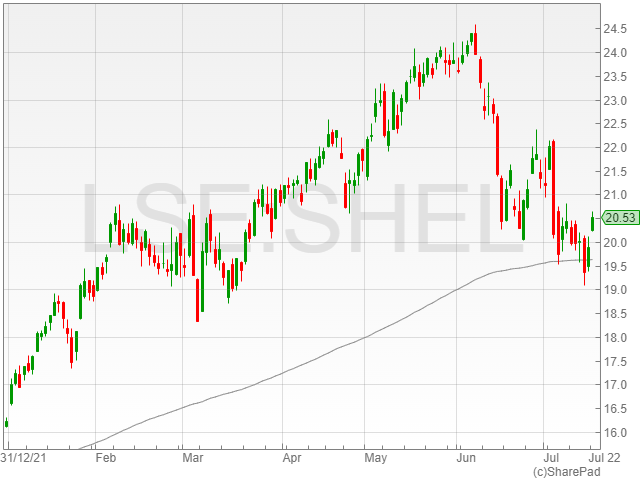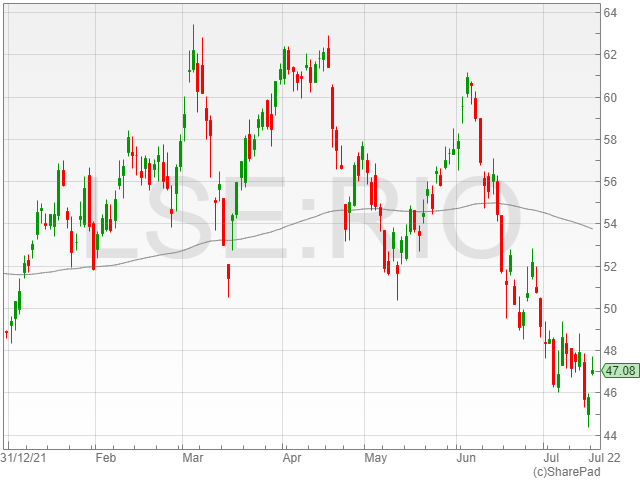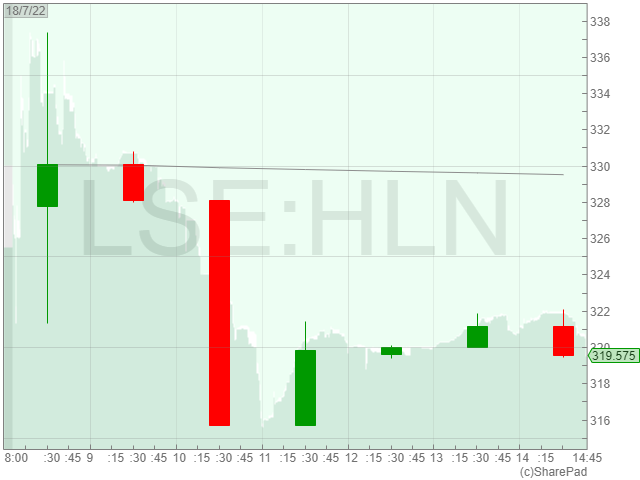The FTSE 100 gained on Monday after oil companies and commodities pulled the market higher.
Shell and BP shares gained 2.7% to 2,045p and 3.4% to 386.1p, respectively, as the price of oil rose after talks between the US and Saudi Arabia failed to spark an increase in output supply, with benchmark Brent Crude reaching $105 per barrel.
“Leading the UK market higher were oil stocks Shell and BP … and the big miners,” said AJ Bell financial analyst Danni Hewson.
“Commodities joined the parade, with Brent Crude oil advancing 2.5%.”



Asia-focused stocks rose on positive news from China, as the property market improved after Chinese regulators stepped in to urge lenders to support housing developers after consumers protested uncompleted properties last week.
“In Asia, property stocks moved higher on reports that Chinese regulators were putting pressure on lenders to support real estate developers following mortgage payment protests last week from homeowners upset about unfinished developments,” said Hewson.
The Hang Seng climbed 2.7% to 20,846.1 and the Shanghai SSE rose 1.5% to 3,278.1.
Burberry shares increased 3.5% to 1,642.5p, Prudential rose 3% to 1,008.2p and Scottish Mortgage Investment Trust gained 1.9% to 797.5p.
Meanwhile, positivity in Asia led to an uptick in commodities stocks, as investors found optimism at the prospect of higher levels of consumption in the region.
Anglo American shares increased 2.4% to 2,613.2p, Antofagasta gained 3.4% to 1,026.5p, Croda rose 1.3% to 6,820p, Fresnillo saw an uptick of 1.4% to 654.9p, Glencore climbed 3% to 419.4p and Rio Tinto gained 2.8% to 4,707.5p.



GSK completes Haleon demerger
GSK finally completed its Haleon demerger, with the newly listed Haleon Group enjoying the largest London debut in a decade.
The company started off on slightly wobbly legs, with the shares launching at 330p and currently trading at 320p.



The market value in Monday morning trading was £31 billion, which is markedly below the £50 billion offer rival firm Unilever proposed earlier this year.
Analysts have also cited concerns that the cost of living crisis could see consumers turn to store brand healthcare options rather than name brand products, serving to dent Haleon’s appeal.
“With a market value of approximately £31 billion, investors might be wondering why GSK didn’t accept the much higher bid from Unilever,” said Hewson.
“While Haleon owns some well-known brands including Sensodyne and Advil, that may not be enough to entice a line of buyers for the stock. Shoppers are increasingly going for supermarket own-label products as the cost of living crisis hits, with plenty of cheaper options for toothpaste and headache tablets than those sold by Haleon.”
“That raises the risk of Haleon struggling to deliver meaningful earnings growth in the near-term, which is hardly the best start to life as a standalone business.”





